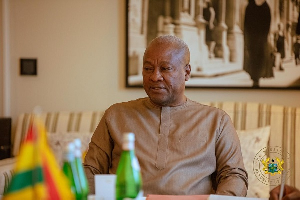Accra, April 10, GNA - On April 13 Marie Stopes International (MSI), a United Kingdom-based international non-governmental organisation working in sexual reproductive health worldwide, will open its doors to the public for the first time in Ghana and provide them with quality information and service.
With over 30 years' experience, Marie Stopes International is a social business service committed to providing quality information and service to help people to protect themselves from Sexually Transmitted Diseases (STD) as well as empower them to have children by choice and not by chance.
Established in London in 1976, it grew out of the organisation originally set up Dr Marie Stopes in 1921. MSI set up its first overseas centre in Ireland in 1921 and a year later opened a centre in India. It has branches in 38 countries across Africa, Asia, Australia, Europe, Latin America and the Middle East and provides services to over four million people. Ghana and Sierra Leone are the only MSI partners in West Africa.
Marie Stopes, described as a passionate and phenomenal family planning pioneer ahead of her time in the 1920s, advocated for women's rights and sexual health in Victorian England where women had the right to only vote.
Sexual matters were never discussed and her hard work broke the jinx and resulted in the UK's first family planning clinics.
MSI began its operations in Ghana in September 2006 with a vision of opening three centres of excellence in Accra, Tema and Kumasi to start with and to rural areas through mobile outreach programmes to take sexual health information and services to underserved women and men. Mr Fred Gbagbo, Clinical Services Manager, said MSI was committed to reducing maternal and infant mortality in the country as well as compliment the efforts of partners such as the Ghana Health Service. He said MSI would provide services in the areas of sexual reproductive health consultation, guidance and counselling, comprehensive family planning service, male and female clinics, antenatal and post-natal care, laboratory services and pregnancy crisis counselling and management at subsidised rates.
Mr Gbagbo said with a team of highly trained and dedicated staff, the public could be assured of quality services in the clinics they call centres because "they are beautiful like homes". These services would be replicated in deprived areas through outreach programmes.
The centres would, in the near future, also serve as referral centres and train health workers as well. 10 April 07
General News of Tuesday, 10 April 2007
Source: GNA
















